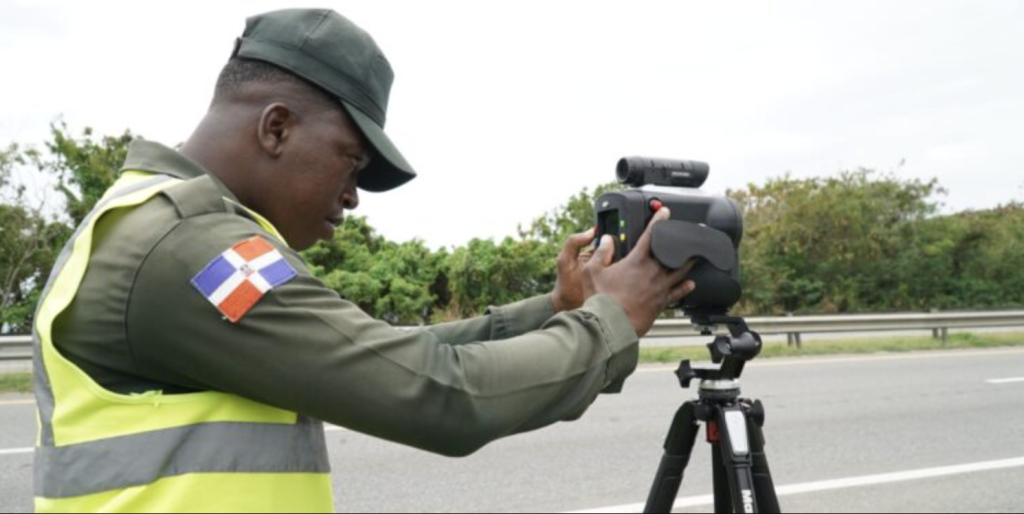
An automated traffic monitoring system by the Traffic and Land Transport Agency (Digesett) aims to penalize speeding drivers but has raised concerns over its potential to generate “phantom fines.” The system, which uses digital radars, targets vehicle owners rather than the actual driver, basing penalties solely on the license plate number.
This means that borrowers of vehicles or those who haven’t yet transferred ownership will not receive any sanctions for speed violations, but the owners of the vehicle will be responsible for paying the fines.
The system is still in pilot stage. As reported in El Dia, fines are not directly communicated to either the driver or the registered vehicle owner.
Digesett Director General Francisco Osoria de la Cruz justified this approach, citing tax regulations that allow a grace period for vehicle ownership transfers. He added that similar digital monitoring systems are used worldwide, targeting vehicles through their license plates.
The radars use electromagnetic waves to measure speed. These waves reflect off moving vehicles and return to the device. The time taken for this round trip indicates the vehicle’s speed.
Digesett says the program is in a pilot phase and there is the intent to install these devices along high-traffic roads nationwide, enabling more effective surveillance and efficient management of road situations. The digital radars are designed to capture images of speeding drivers without direct agent intervention, reducing exposure on the roads.
This new system has resurrected citizens’ fears of “phantom fines,” where traffic violations are registered in their names without their knowledge or without the cases being real, as reported in Diario Libre.
For years, Dominicans have reported unexplained traffic infractions in the Attorney General’s records, causing issues with vehicle registration and transfers. These erroneous fines can be challenged at the Traffic Prosecutor’s Office that many times has attributed these to system duplication errors.
Interviewed by Diario Libre, traffic expert Dary Terrero said the system is but a media show and bluff citing legal and system flaws.
In an editorial today for Diario Libre, Dionisio Soldevila highlights the need for consequences for traffic violations in the Dominican Republic. He wrote about the leadership the country has in deaths caused by traffic accidents – 3,114 deaths in 2024. Of these 71% were caused by motorcyclists. The situation is said to cost the country RD$131 billion a year.
Read more in Spanish:
El Dia
Diario Libre
Diario Libre
4 March 2025

